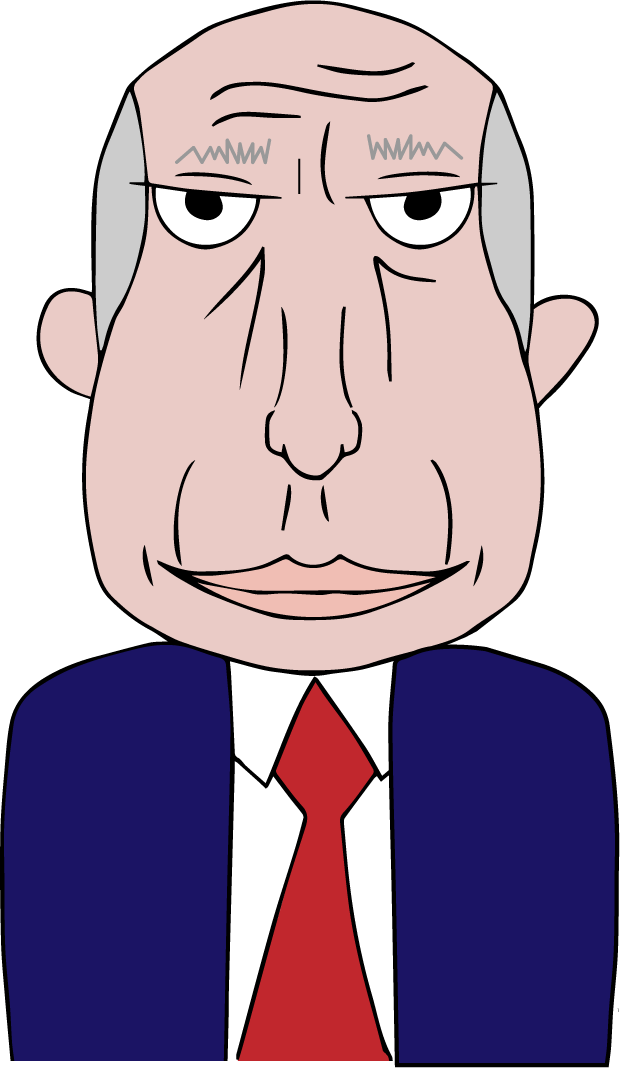The nature of the presidency is being responsible for the safety of all 8 billion citizens, which makes it an extremely important position. Imagine a senior citizen being president of the United States, one of the most powerful people on the planet. Having control over nuclear codes, passing or vetoing laws in the country and being involved in foreign affairs. Unfortunately, this is the reality. The current president, Joe Biden, is the oldest in our country’s history and recently turned 81 years old on Nov. 20. The United States government is currently being ruled by old, outdated men who have lost the meaning of being an U.S. citizen. The U.S. is in a state of emergency regarding age and our leaders are overdue to be relieved of their duties. Implementing an age limit is critical to ensure that we are represented by citizens who are not on the verge of retirement.
The United States Constitution states all the age requirements to run for government positions. The age of the House of Representatives is 25, the age of the Senate is 30 and the presidency is 35. However, there are no maximum age limits for any of these jobs, all of which are crucial to the lawmaking capabilities of the country. In comparison with other jobs, the president is legally allowed to serve much farther into his life. A person with a position in the United Nations must be no older than 62, military personnel 39 and World Health Organization workers 65. In the 118th Congress, the oldest representative and senator are 87 and 90 years old, respectively. Additionally, 189 Representatives and 67 Senators are older than 62, which is the age of retirement in the United States. Retirement in the U.S. is a joke, but having the financial ability to retire and not take it is ludicrous.
There are also medical reasons and logistics as to why an age limit is needed. The current life expectancy in the U.S. is 76.4, which is alarmingly close to the age of representatives in the government. Aging and death go hand-in-hand, and it leads to diseases such as Parkinson’s, Alzheimer’s, cataracts, dementia and other cognitive and physical disabilities. With these obstacles arising, the country should have leaders who are healthy and capable of serving in an official capacity.
Congress members should not be serving if they are older and experiencing symptoms, nor should they make the headlines for refusing to step down. Former Congresswoman Dianne Feinstein, aged 90, and former Supreme Court Justice Ruth Bader Ginsburg, aged 87, both refused to retire and died in office. Both left vacant seats and required the Senate and Supreme Court to fill their roles, causing unnecessary procedures that could have been handled better. Citizens should not be left having to worry whether or not our elected representatives will pass away and leave seats open in a battleground state such as North Carolina. Elected officials are voted to represent us, and if they do not foresee themselves being able to serve their elected time, they should not be allowed to run for office.
The necessity of age limits is also due to the ability of lawmakers being able to accurately represent citizens. With the average age of U.S. citizens currently at 38.9 years old, it is polarizing to see that a good portion of elected officials have no sense of familiarity with the current struggles that we face. Phrases such as “knowing what the people need” and mentioning experiences become moot, as they are older and richer and cannot possibly relate to the average citizen. The generational divide is a real issue, and in order to accurately represent people in federal funding, programs and overall assistance, being able to know the struggles is important.
Age limits are not new, and become bigger issues every year. Seeing and hearing the ages of congresspeople surge upward sparks the same old conversation about whether old people should be running the country. And with recent spikes of health concerns in current politicians, such as President Joe Biden and Senator Mitch McConnell, there is reason to be concerned. It is also a unifying issue, as a recent poll by the Pew Research Center found that 82% of Republicans and 76% of Democrats support putting an age limit in Congress. And yet nothing comes of these discussions, as it would require congressional representatives to vote and pass a law that would either kick them out of office or shorten their time in power.
Discussion of term limits has also become prevalent, yet would unhinge on citizens being able to continuously vote on a favorable representative and not directly fix the age issue. It is long overdue for actions to be taken, and it should be a priority in the country to ensure that elected officials have their constituent’s best interests in mind, and the ability to serve while in a healthy condition.






